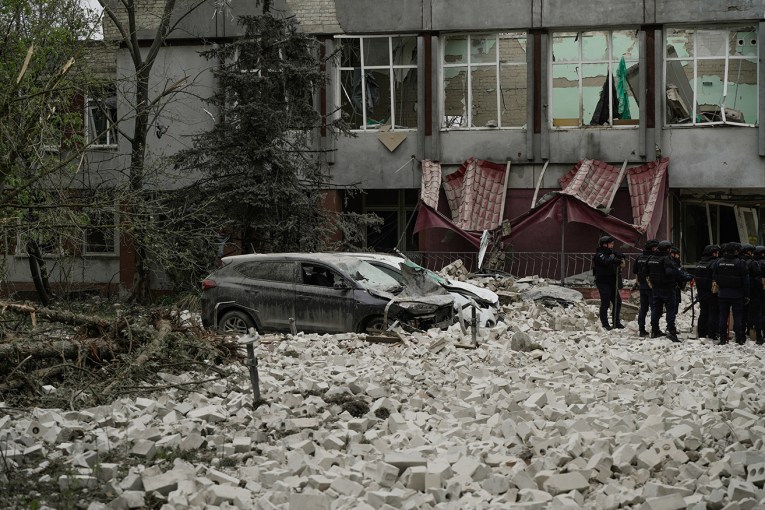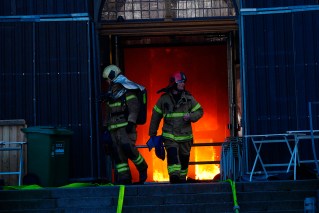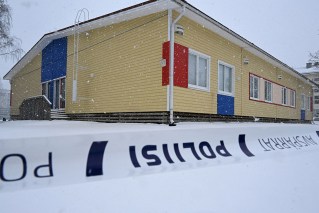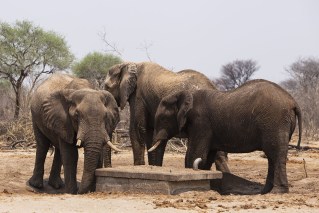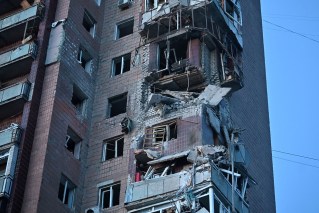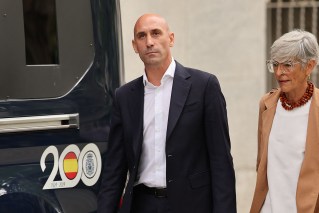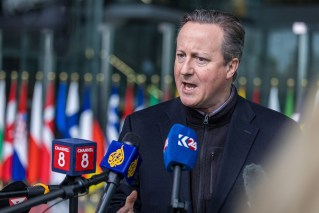How Australian volunteers secured medical supplies for Ukrainian cities under siege

When Russia invaded Ukraine in February, Dr Liz Paslawsky felt compelled to help wounded civilians and soldiers.
The Sydney-based healthcare executive and consultant, who is of Ukrainian heritage, contacted the country’s embassy in Canberra to ask what medical supplies were needed.
“I decided to develop a medical supply chain from Australia into Ukraine,” Dr Paslawsky told The New Daily.
Given her background in international health insurance and mentoring hospital executives, Dr Paslawsky said the vision came naturally to her.
This kicked off a nationwide effort to source and ship more than 90 pallets of first aid and hospital equipment from Australia to war-torn areas of Ukraine – completely free of charge.

Dr Liz Paslawsky delivering a lecture on public health at the Ukrainian Catholic University in Lviv. Photo: Supplied
To help, she enlisted the Australian Federation of Ukrainian Organisations.
The group’s spokesperson, Nadia Mencinsky, said Dr Paslawsky and a team of 10 volunteers had “thrown out the rulebook in terms of supply chains” by quickly harnessing community networks.
The Ukrainian embassy in Canberra gave the volunteers a list of goods needed in war zones.
It included first-aid supplies like bandages, tourniquets, thermal blankets and surgical tools, as well as big-ticket items like defibrillators and portable oximeters.
Dr Paslawsky and the other volunteers then contacted public hospitals in Victoria, New South Wales, Queensland and South Australia to see if they could help.
She said they were “extremely generous” in providing all the necessary equipment, with the donations totalling 90 pallets’ worth of supplies and counting.
“They were using bike tyre tubes as tourniquets,” Dr Paslawsky said of the soldiers in Ukraine.
“So that’s why, for us, there was a real sense of urgency in getting those medical supplies across.”
Among the volunteers were a doctor, a surgeon, a paediatrician and a pharmacist to review the donated goods.

Hospitals from around Australia donated first-aid equipment and other medical supplies. Photo: Supplied
Rotary clubs then sorted the supplies and helped transport them to warehouse spaces provided free of charge by a logistics company.
And a major international airline offered to airfreight the goods to London for free.
The airline, the warehouse company and other organisations involved in the initiative can’t be named due to the threat of Russian cyberattacks, according to the volunteers.
“None of them can say this for advertising at this point in time, and they can’t use it for social responsibility, because we’re trying to keep their names out of the media,” Dr Paslawsky said.
“This is because they care.”
She added that at every stage of the journey, there was a champion inside every company who really pushed on behalf of the cause.

Rotary volunteers helped sort and pack palletloads of medical supplies destined for Ukraine. Photo: Supplied
In London, the medical supplies were picked up by a newly formed aid group called UK4UA that specialises in transporting essential goods from Europe to Ukraine.
Volunteers – many of whom were Scouts from Wales – drove the goods to the Lviv Catholic University, in the west of Ukraine.
“But we had different routes, depending on where the war zones were,” Dr Paslawsky said.
From there, the first supplies have started being delivered to war-torn cities including Kharkiv, Odesa and the capital, Kyiv.

British aid group UK4UA helped deliver the Australian medical supplies to Lviv. Photo: Supplied
The month-long undertaking had been relatively covert until now.
“We avoided any promotion about what we were doing, and utilised underground distribution networks,” Dr Paslawsky said.
That’s because volunteers feared any publicity could jeopardise the whole initiative before the supplies had arrived.
On the diplomatic front, the Australian government has pledged $65 million in humanitarian aid, 70,000 tonnes of coal plus a fleet of Bushmaster armoured vehicles to Ukraine.
But it’s grassroots movements like this, and the Australians offering to host Ukrainian refugees, that has demonstrated the power of local networks thinking globally.
“I’m not surprised that it’s happened,” said Ms Mencinsky from the Australian Federation of Ukrainian Organisations.
“And that’s what we’re finding with the community at the moment is that we have our existing organisations, but people are coming up with great new ideas and great ways to help.”
